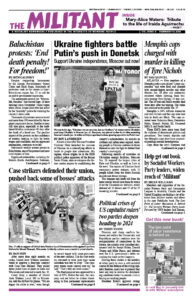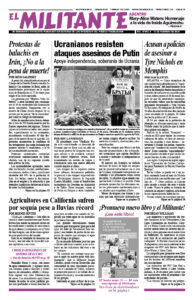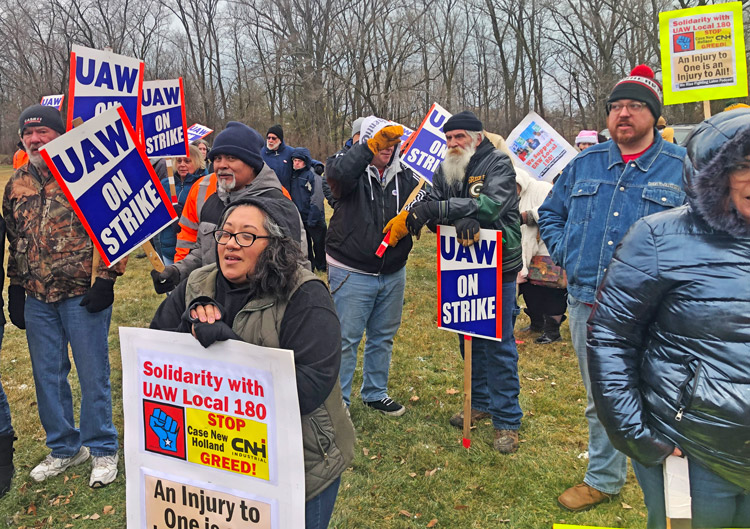After more than eight months on strike, United Auto Workers members voted to approve a four-year contract with Case New Holland. They pulled down picket lines at plants in Iowa and Wisconsin and returned to work Jan. 30.
Corey Gray, a member of United Auto Workers Local 180 in Wisconsin, told the Militant by phone, “We are happy the strike is over,” even though he wasn’t happy with some provisions of the new contract. The fact that workers returned to work with their union unbroken was key to Gray. “The company wants more control over us,” he said. “That’s why we need unions.”
The final proposal was approved by a vote of 62%. Before the vote, the company sent out letters to strikers threatening to hire permanent replacements if the contract wasn’t approved. “That turned the tide for accepting the contract,” UAW Local 180 President Yasin Mahdi told the Militant.
Strikers were able to beat back some of the company’s most onerous demands. Kim Alber, a paint line worker and member of UAW Local 807 in Burlington, Iowa, told the Des Moines Register that her annual health insurance deductible would have increased to $13,000 under the company’s original offer. Now, current employees will keep their current plan for a year and a half, but then get an inferior plan for the remainder of the contract. New hires will immediately be forced to take more expensive health insurance.
Case workers will still be subject to forced overtime. “The new contract has us working more Saturdays,” Gray said. “We need Saturdays for family time.” They’ll also receive a $4,500 signing bonus, which many workers say they can really use.
Over the course of the strike, several solidarity actions and support from unionists across the country helped reinforce the determination of the strikers. As the temperature dipped below the freezing mark, 200 strikers and supporters collected Christmas gifts, food and hand warmers as they rallied Dec. 17 at the union hall outside of Racine, Wisconsin. They caravanned throughout the town and to the picket line at the plant.
From the very beginning of the strike, Case New Holland — a multinational construction and agricultural implements giant with some 37,000 workers overall — brought in scabs and management personnel to try to keep production running. The company reported its third-quarter profits jumped 22% to $559 million.
After months walking the picket line, the strike took its toll on some. A few workers crossed the line to return to work. Some others “were considering crossing if the strike continued,” tool and die maker Tony Marnall said.
One outstanding issue is the status of the couple dozen agency workers who joined the picket line and the union agreed to give them strike pay. Strikers said the company has agreed to hire those workers back, but the union plans to make sure bosses do so.
“We want to honor them,” striker Tracy Chew told the Register.


